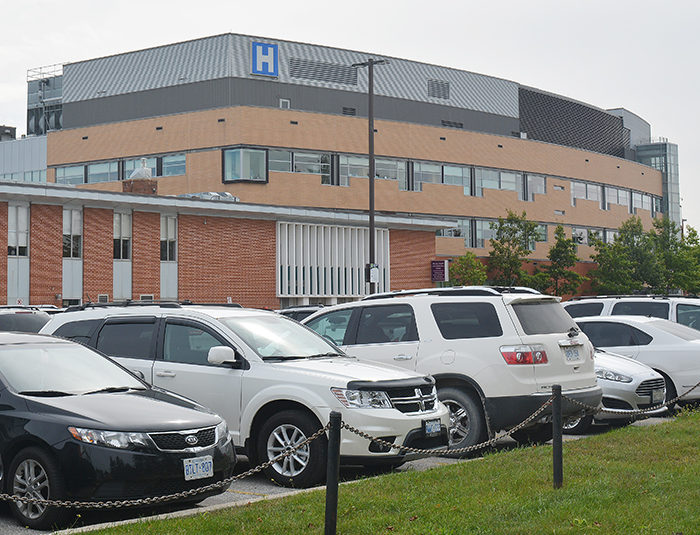
Sixty-two.
That’s the number of procedures the Chatham-Kent Health Alliance had to cancel over the final nine months of 2022.
Caen Suni, vice-president of clinical programs and operations, said a lack of available hospital beds, for various reasons, led to the cancellations.
COVID outbreaks at the hospital were part of it. So too was the impact of people delaying coming to the hospital as a result of the pandemic. When they did come in, often their stay was longer, as their conditions became more acute.
Suni said the surgery delays here are significantly below the provincial average, where about 48 per cent of people who are in need of surgery experience a longer than expected wait time to have the procedure.
“It’s 12 per cent here at CKHA. We’re really just making sure we can look after those caseloads, ensure surgeons’ offices are working with their patients, and when clinically possible to focus on long-wait patients first,” he said.
Suni said the previous two months put pressure on the hospital system, as surging cases of seasonal illnesses – such as the flu and RSV – ate up hospital bed space, which in turn left a shortage in space for surgical patients in terms of recovery.
However, that surge is waning. Visits to the emergency departments in Chatham and Wallaceburg have been down in recent months, but in the later part of 2022, patients showed up with more serious symptoms. As a result, two-three more patients a day than average were being admitted, despite the lower number of emergency department visits.
However, in recent weeks, a great deal has changed, Suni said. The emergency departments saw a 50-per-cent decline in pediatric cases, and a 33-per-cent drop in adult cases in January as compared to December.
During times when there were not enough available beds to accept scheduled surgery patients that were slated for overnight stays, procedures continued, but the focus shifted to day surgeries.
“A common strategy was if you had (COVID) outbreaks or had to close specific units or just had too many admissions, you tried to perform outpatient procedures,” he said. “Same-day surgeries replaced others.”
As well, where possible, joint replacement surgeries will see patients leave the hospital without an overnight stay.
“We’re ramping up hip and knee replacement procedures so they can go home the same day. Of course, this depends on an individual’s conditions going in, but often it gets them home faster,” he said.
Meredith Whitehead, vice-president of transformation, and chief nursing executive for the CKHA, said any staffing shortages are not to blame for procedural cancellations. In fact, the alliance is ahead of the province in terms of staffing. Openings here are at about 7.4 per cent, whereas the Ontario average is at 10.7 per cent.
“I can say we have not had to shut down surgeries or any other piece because we don’t have staff,” she said. “Do we sometimes have to move staff around? Absolutely. But we have not had to do that due to the pandemic in probably eight months.”
Whitehead said the big factor regarding staffing now is fatigue. The past three years have been very trying times for health-care personnel, and some have suffered burnout to the point where they are leaving the industry. Others are retiring.
“Our staff stepped up and our past staff stepped up through the pandemic and have been amazing,” she said.
As well, there have been opportunities through the province for nursing school students to help out and get hands-on experience.
“We’ve been very, very lucky. The province has been very good to us. We have an extra program for paramedic and nursing students. They can come and work as a PSW (personal support worker) if they’re in a placement program,” Whitehead said.






